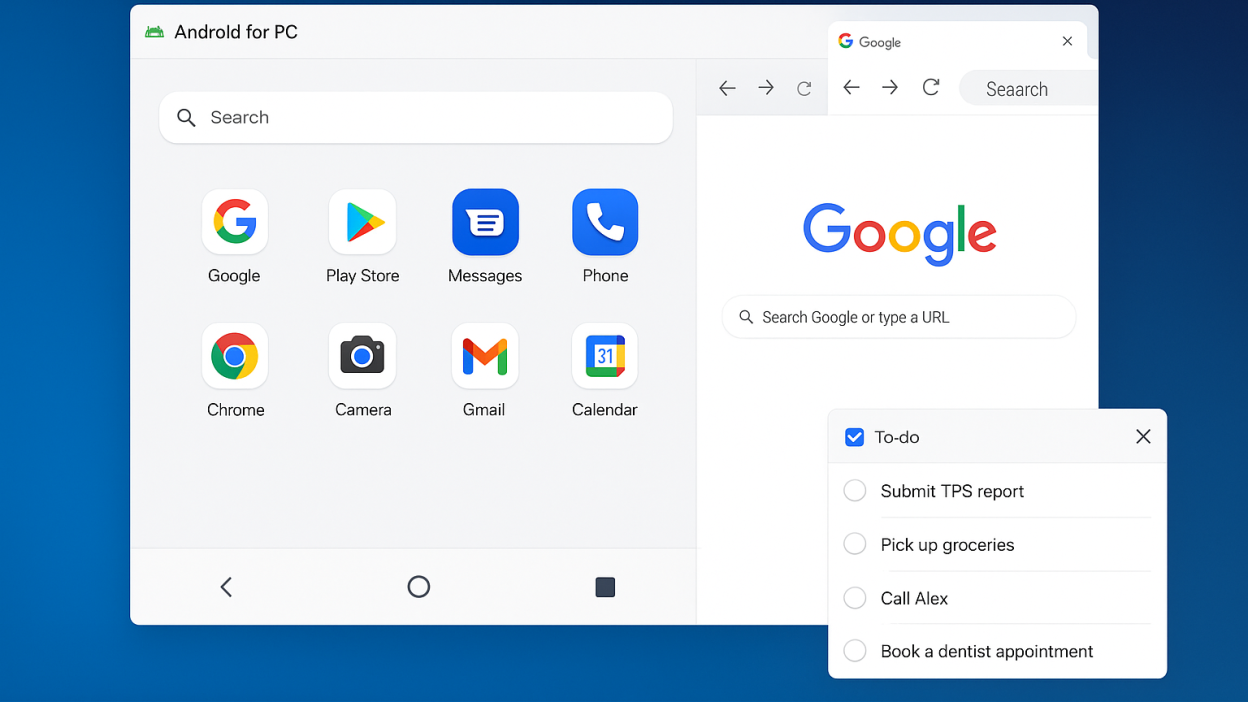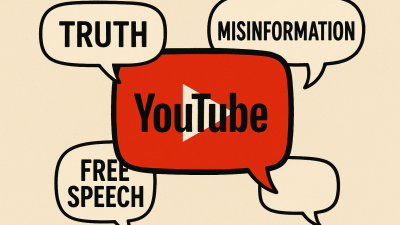Android for PC: Why This Could Be the Game-Changer You Didn’t Know You Needed
Think you’re opening your PC tomorrow and running your favorite Android apps seamlessly—messaging friends on WhatsApp, sketching on a drawing app, or even testing a new AI tool—without ever picking up your phone. It sounds futuristic, but Google’s Android for PC is making this possibility real. And honestly? It might just change the way we think about computing altogether.
For years, mobile and desktop experiences felt like parallel worlds: your phone was for quick tasks, your PC for serious work. But as our lives blur across screens—chatting with colleagues, streaming content, coding apps, or tracking health—this separation starts to feel artificial. Android for PC isn’t just a tech novelty; it’s a glimpse at a future where your workflow, your apps, and your digital life are truly unified.
This is bigger than convenience. It’s a potential revolution in productivity, creativity, and the way developers design software. For users, it promises efficiency without friction. For developers, it’s a fresh canvas for innovation. And for the tech world, it could redefine the balance of power between operating systems. Let’s explore why Android for PC could be one of the most exciting shifts in computing we’ve seen in years.
The Problem Android for PC Solves
If you’ve ever tried to get work done while hopping between your phone and your computer, you know the pain. Maybe you’re on a PC trying to continue a conversation on WhatsApp, or sketching on an Android app while simultaneously writing a report. Right now, that requires workarounds: emulators, syncing apps, or switching constantly between devices. It’s clunky.
Android for PC tackles this head-on. By bringing the full Android experience to your desktop, it removes the friction. No more switching screens or worrying if a critical mobile app is available on desktop. It’s about creating one seamless digital environment where your tools, apps, and workflow coexist naturally.
Think of it like this: it’s the difference between having a toolbox in the garage and suddenly realizing all your tools are magically on your kitchen counter. Everything is accessible, functional, and ready when you need it.
What Makes Android for PC Different
This isn’t just Android shoehorned onto a PC. Google is designing a desktop experience that feels native while retaining the flexibility users love.
-
Desktop Windowing: Apps open in resizable windows, just like your favorite desktop software. You can multitask efficiently—have a video call on one window, a document open on another, and a productivity app in a third. No compromise between mobile simplicity and desktop power.
-
Quick Share: File transfers between Android devices and PCs become effortless. Snap a photo on your phone and drag it straight into a desktop app. It’s small, but it’s one of those features you didn’t know you needed until it’s there.
-
Unified App Ecosystem: Suddenly, the millions of Android apps aren’t confined to your phone. From AI tools to creative apps, they’re all within reach on your PC. This could reshape how we work, play, and innovate.
From a human perspective, this is more than a technical update—it’s a shift in lifestyle. For a freelancer juggling multiple clients, or a student balancing research and social life, the experience becomes smoother, faster, and more intuitive.
Why Developers Should Care
For developers, Android for PC is a golden opportunity—but also a challenge.
Imagine designing an app that’s no longer limited to 6-inch screens. Your audience suddenly expands to anyone using a PC, whether it’s for work, gaming, or creative tasks. That’s millions more potential users.
The challenge? Apps need to scale elegantly. Input methods change—keyboards, mice, large monitors—and expectations are higher. Developers who embrace these nuances early could dominate the next wave of cross-platform innovation.
And monetization? With a desktop presence, apps gain new revenue streams. Subscriptions, enterprise solutions, and integrated desktop workflows all become viable. It’s not just about coding; it’s about shaping how people live and work digitally.
A Peek at the Future of Computing
Android for PC hints at a future where the lines between mobile and desktop blur completely. Imagine starting a project on your phone while commuting, seamlessly continuing it on your PC, and then collaborating with teammates across devices without a single hiccup.
For businesses, it could redefine productivity. No longer do employees need to wrestle with device limitations or app incompatibilities. For creators, the sky’s the limit—your digital studio is wherever you are, powered by the apps and tools you already know.
Could this lead to a world where “mobile-first” and “desktop-first” computing merge into a single, device-agnostic approach? Possibly. And that’s exciting—not just for tech enthusiasts, but for everyday users whose digital lives span multiple screens.
Potential Challenges
No innovation is without hurdles. Android for PC faces:
-
Performance and Compatibility: Not all devices may handle Android apps smoothly, and not all apps may scale well to desktop use.
-
Learning Curve: Users might need time to adapt to the new interface and multitasking features.
-
Ecosystem Fragmentation: If some apps or features aren’t available, it could cause frustration and limit adoption.
But every tech shift comes with a learning curve. The key question isn’t whether challenges exist—it’s whether the benefits outweigh them. Early signs suggest they do.
Android for PC isn’t just a new platform—it’s a statement about the future of computing. By uniting mobile and desktop experiences, Google is addressing a human need: seamless, intuitive, and flexible technology that adapts to how we live and work.
For users, it promises smoother workflows, less friction, and more control over digital life. For developers, it opens new audiences, revenue opportunities, and creative challenges. For the tech industry, it signals a shift toward unified computing that could redefine productivity and innovation standards.
The question isn’t just whether you should care—it’s how you’ll adapt. Android for PC could be the game-changer that turns fragmented digital routines into one cohesive, powerful experience. And when it arrives, the way we interact with technology may never be the same.
FAQs
-
What is Android for PC?
Android for PC is Google’s initiative to bring the Android operating system to desktops, allowing users to run Android apps natively on a PC. -
How does Android for PC improve productivity?
With desktop windowing, multitasking, and a unified ecosystem, users can access Android apps alongside traditional desktop apps seamlessly. -
What is Quick Share and how does it work?
Quick Share enables instant file transfers between Android devices and PCs, simplifying workflows and eliminating third-party apps. -
Will all Android apps work on PC?
Most apps will function, but some may require optimization for larger screens and desktop input methods. Developers are adapting apps for the best experience. -
Is Android for PC available now?
Availability depends on device compatibility and regional rollout. Users should check official Google announcements for updates. -
How will developers benefit from Android for PC?
Developers can reach larger audiences, explore new monetization avenues, and innovate for cross-platform experiences. -
Could Android for PC replace traditional operating systems?
Not immediately—but it could influence how users interact with apps, blur mobile-desktop boundaries, and push other OS providers to innovate.
Stay ahead of the curve in tech innovation. Subscribe to our newsletter for exclusive insights on Android for PC, cross-platform computing, and the future of productivity. Get expert analysis, practical tips, and stories that show how technology is shaping your digital life—directly in your inbox.
Note: Logos and brand names are the property of their respective owners. This image is for illustrative purposes only and does not imply endorsement by the mentioned companies.


